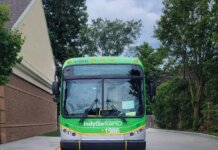Chicago Area Clean Cities (CACC), a nonprofit coalition that promotes clean transportation in Chicago and the surrounding suburbs, has released an Alternative Fuel Corridors Study that looks at vehicle usage and infrastructure needs for the Chicago region.
The study maps the existing alternative fuel sites in the six-county Chicago area and throughout Illinois, and in some case, adjacent states. Listening sessions were conducted over a six-month period with key stakeholders, including commercial and government fleets, retail refueling companies, highway authorities, utilities and more.
“This study will inform planners, jurisdictional authorities, legislators, fleets, retail refuelers, and a range of other decision-makers on the state of alternative fuels,” says John W. Walton, chair of the Chicago Area Clean Cities Coalition.
“It highlights the alternative-fuel and electric vehicles on the market and expected to be introduced, as well as the fueling infrastructure supporting these markets. It also examines what it will take to advance the use of emissions-reducing alternative-fuel and electric vehicles in our region and beyond, leveraging new federal and state policies that are expected in the years ahead,” he says.
The corridor study compiles the feedback from the Chicago-area coalition’s stakeholders into a set of recommendations for where to successfully site alternative-fuel stations. A gap analysis also was completed, which considers the geospatial opportunities for siting based on mapping. Stakeholder feedback provides input on critical needs sites to be ready and successful.
The report focuses on and near the main transportation corridors in CACC’s region (Cook, DuPage, Kane, Lake, McHenry and Will counties in Illinois) but considers highways throughout the Midwest region.
The document is based upon work supported by the U.S. Department of Energy, Office of Energy Efficiency and Renewable Energy (EERE), under award number DE-EE0007996.
To access the report, click here.







